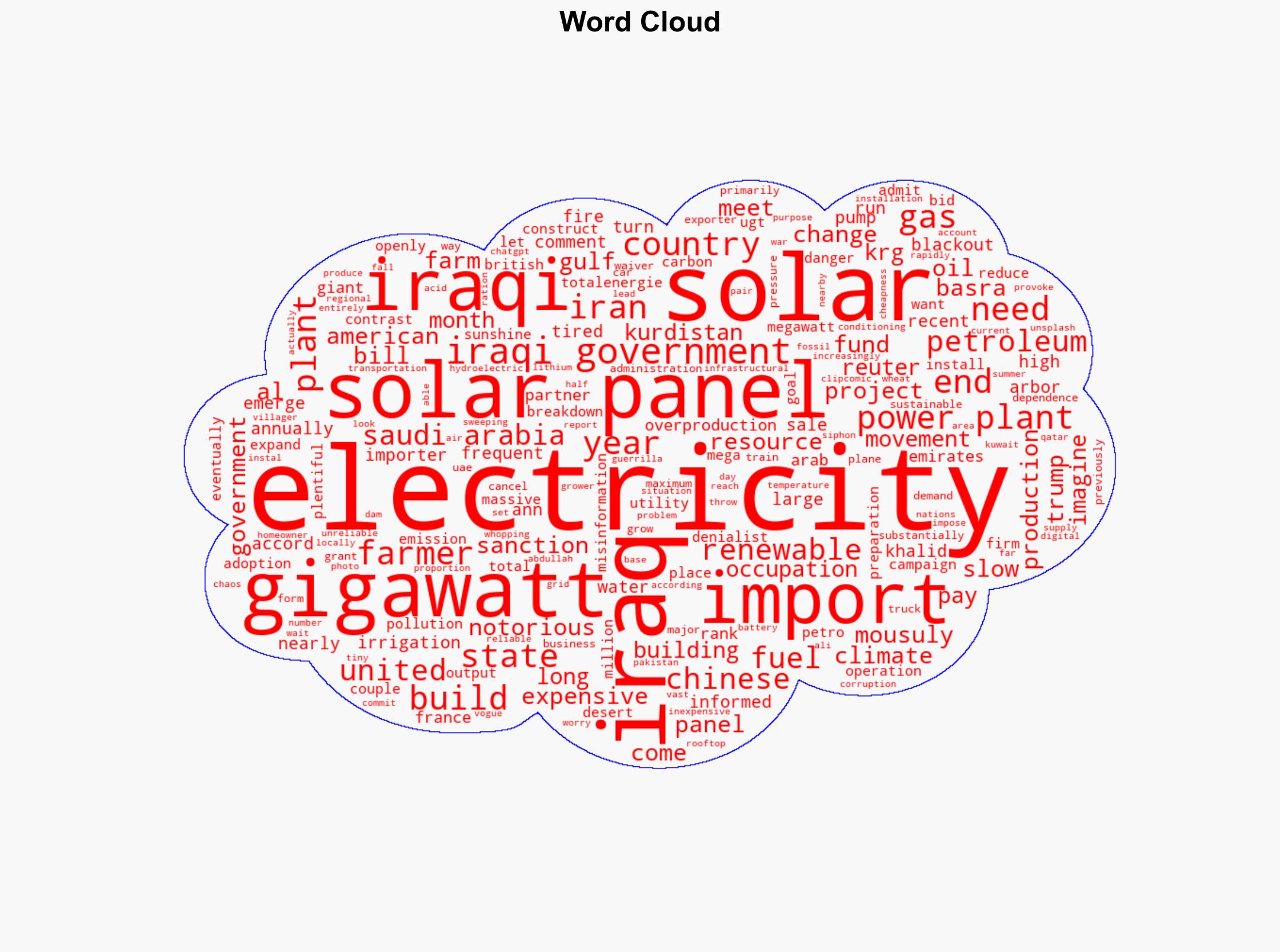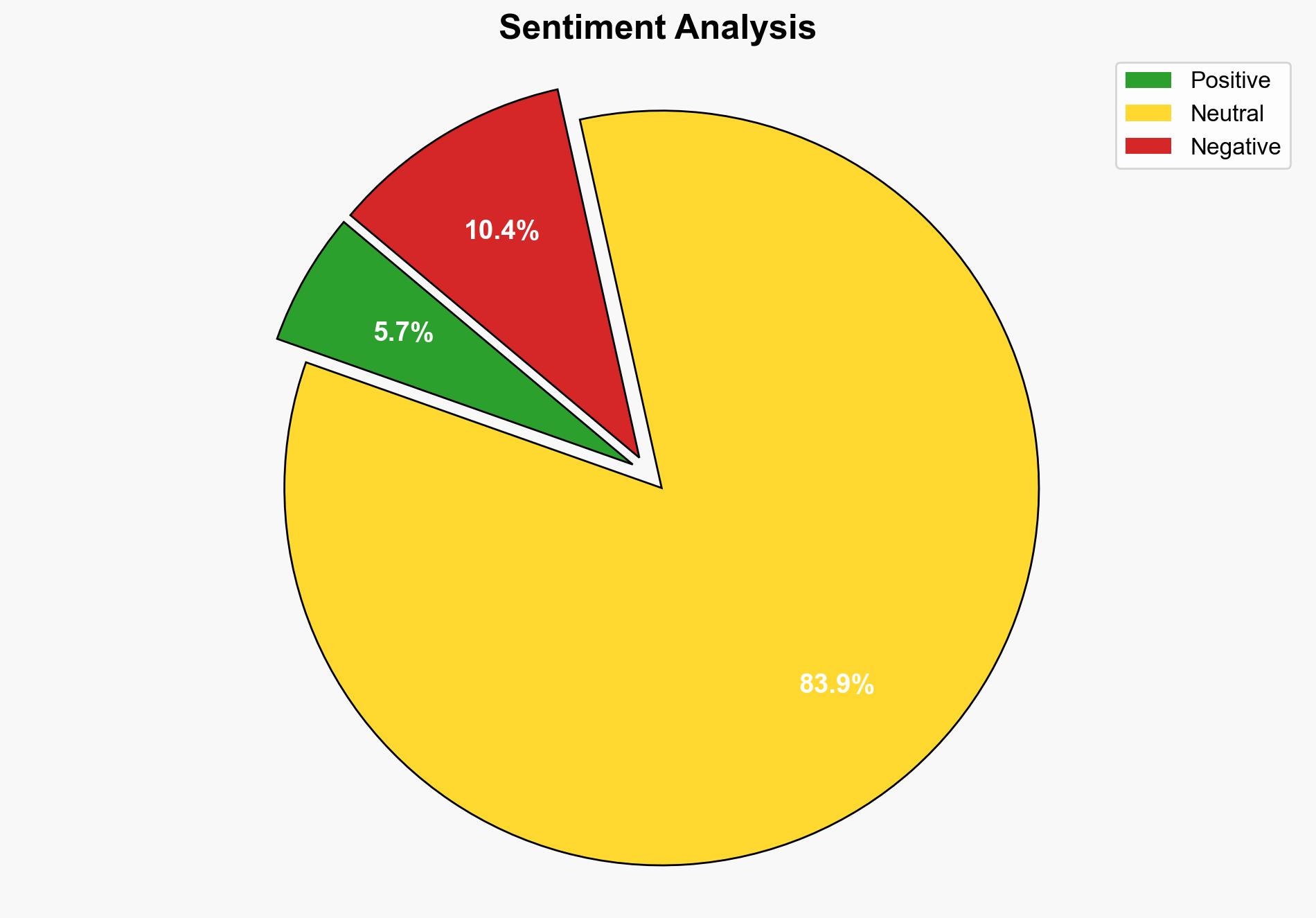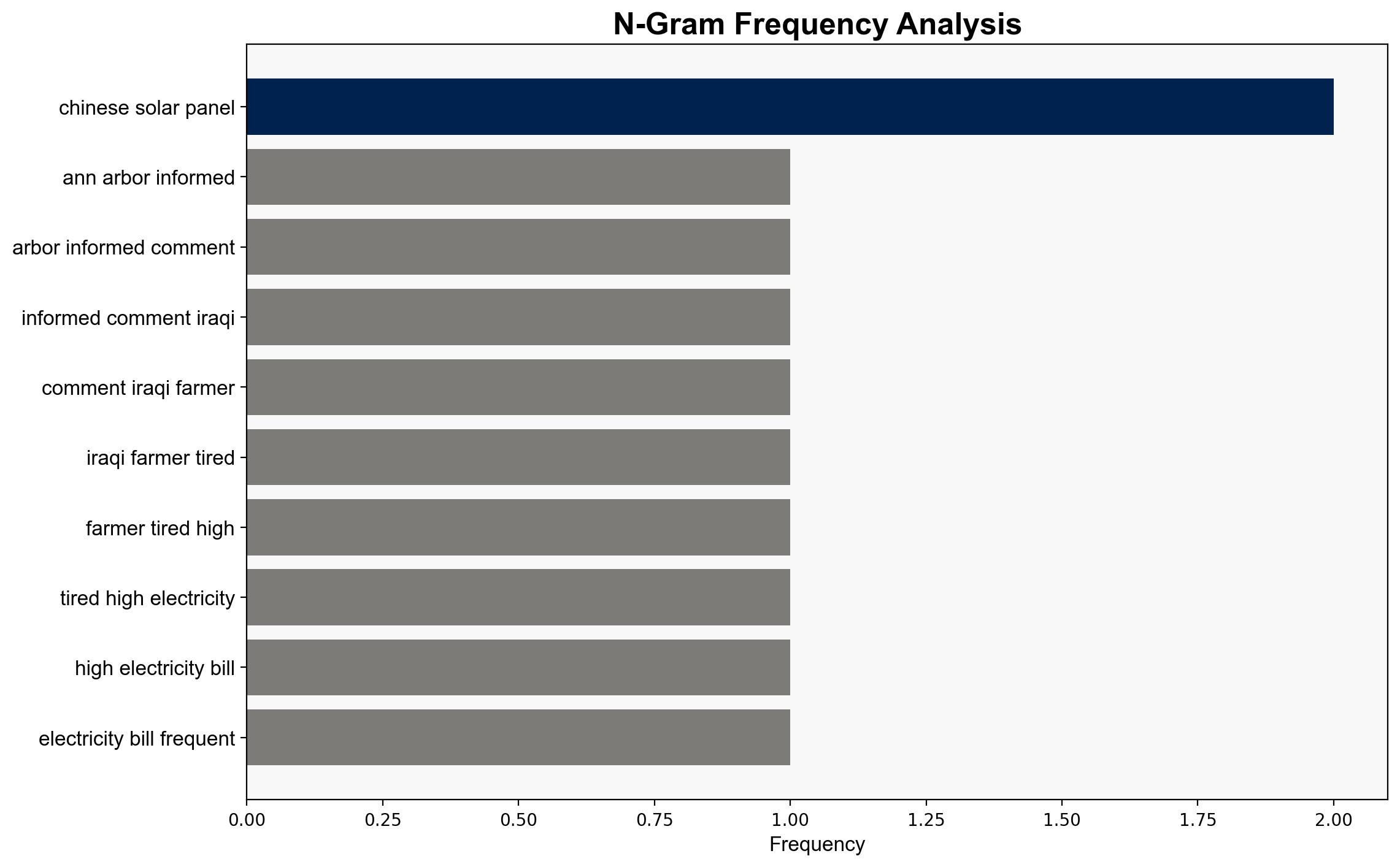America may have invaded Iraq for its Oil but Solar Power is what Iraqis now Want – Juancole.com
Published on: 2025-08-21
Intelligence Report: America may have invaded Iraq for its Oil but Solar Power is what Iraqis now Want – Juancole.com
1. BLUF (Bottom Line Up Front)
The strategic judgment indicates a high confidence level that Iraq’s shift towards solar energy is primarily driven by domestic needs for reliable and sustainable electricity, rather than external influence. The most supported hypothesis is that Iraq’s government and populace are motivated by the practical benefits of solar energy, given the country’s abundant sunlight and the inefficiencies of its current energy infrastructure. Recommended action includes supporting Iraq’s renewable energy initiatives through international partnerships and investments to stabilize the region’s energy independence.
2. Competing Hypotheses
1. **Hypothesis A**: Iraq’s pivot to solar energy is a strategic move to reduce dependency on fossil fuels and foreign energy imports, driven by internal demand for stable electricity and environmental considerations.
2. **Hypothesis B**: The shift towards solar energy is primarily influenced by external pressures and incentives from international entities, aiming to reduce Iraq’s carbon footprint and align with global renewable energy trends.
Using ACH 2.0, Hypothesis A is better supported due to the evidence of Iraq’s internal energy challenges, such as frequent blackouts and high electricity costs, and the practical benefits of solar energy in addressing these issues.
3. Key Assumptions and Red Flags
– **Assumptions**: It is assumed that Iraq’s government has the capacity and political will to implement large-scale solar projects effectively. Another assumption is that international partnerships will remain stable and beneficial.
– **Red Flags**: Potential corruption within Iraq’s government could siphon funds away from solar projects. The reliability of Chinese solar panel imports and their long-term sustainability is uncertain.
– **Blind Spots**: The impact of geopolitical tensions on Iraq’s energy policy and the influence of regional oil-exporting countries on Iraq’s renewable energy decisions are not fully explored.
4. Implications and Strategic Risks
The transition to solar energy in Iraq could reduce reliance on fossil fuels, potentially altering regional power dynamics and reducing Iran’s influence over Iraq’s energy supply. However, if solar projects fail due to corruption or technical challenges, Iraq could face increased energy instability. The economic implications include potential growth in the renewable energy sector, but also challenges in transitioning labor and infrastructure from oil to solar.
5. Recommendations and Outlook
- Support Iraq’s solar energy initiatives through international technical assistance and investment to ensure project success and sustainability.
- Monitor regional reactions to Iraq’s energy transition, particularly from oil-exporting neighbors, to anticipate potential geopolitical shifts.
- Scenario Projections:
- **Best Case**: Successful implementation of solar projects leads to energy independence and economic growth.
- **Worst Case**: Corruption and technical failures derail solar projects, exacerbating energy instability.
- **Most Likely**: Gradual improvement in energy stability with ongoing challenges in governance and infrastructure.
6. Key Individuals and Entities
– Khalid Al Mousuly (Reuters correspondent)
– TotalEnergies (French energy company)
– UGT Renewable (British-American firm)
– Kurdistan Regional Government (KRG)
7. Thematic Tags
national security threats, renewable energy, regional focus, geopolitical dynamics




